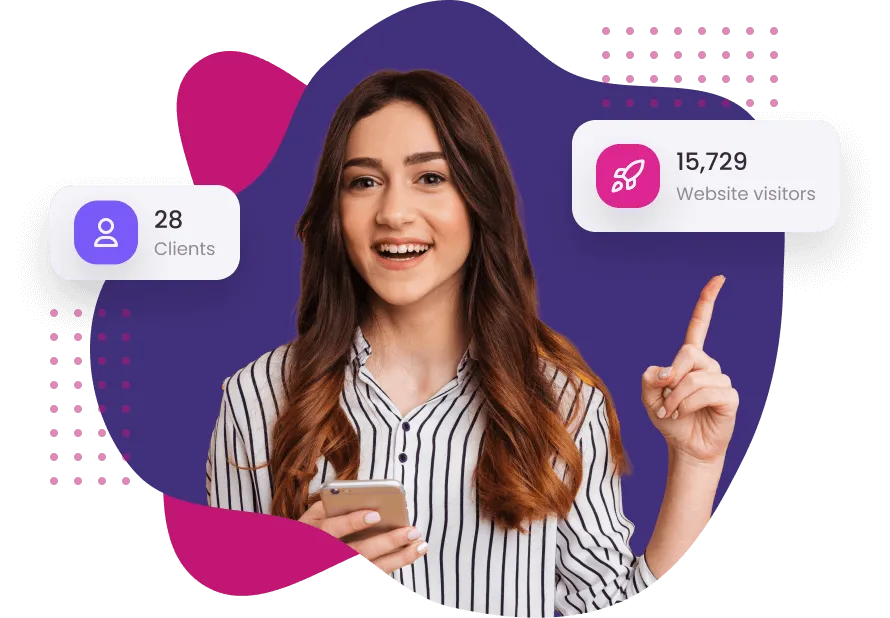Understanding the right time for lead generation campaigns at start-up and scale-up stages

Every business growth stage presents unique challenges and opportunities, and the journey for start-ups and scale-ups is no exception.
Every stage of a business journey comes with its own challenges and opportunities, and it’s certainly the case for start-ups and scale-ups. A question that’s often asked is: When should we start launching lead generation campaigns? This isn’t as straightforward as it may seem, and the answer lies in the nuances of the business stages.
Start-ups and scale-ups: A Journey of uncertainty
Let’s chat about this in the context of start-ups and scale-ups. Start-ups are marked by a whirlwind of uncertainties. Everyone’s hustling to define the market, figure out who the perfect customer is, and confirm if their product or service hits the spot. At this point, your brand and solution are just beginning to see the light of day. So, lead generation? It might not give you the bang for your buck just yet.
When you get to the scale-up phase, the excitement is palpable. You’ve presumably found your place in the market and have a viable business model. However, you might not be the talk of the town yet, and the trust factor could be lacking. Whether you’re a start-up or a scale-up, pouring resources into extensive lead gen campaigns might not be the wisest move.
Understanding your audience
And let’s not forget, we’re dealing with people here, not just any business commodity. They’re not always ready to grab every opportunity that comes knocking. Building trust, authority, and recognition are not overnight tasks, it requires consistent effort and time.
The importance of demand generation and awareness building
So, what should be your focus during these initial phases? Firstly, generating demand and fostering awareness for your brand and solution. Think of demand generation as the magic that brings your marketing and sales teams together, driving interest in what you’re offering.
Building brand and solution awareness isn’t something you can skip. It’s about making your name known, letting people know what you’re all about, and why it matters to them. This stage involves enlightening potential customers about your offerings, showcasing how you can solve their problems, and laying out the benefits in a way that speaks to them. This awareness-building process should take center stage over generating individual leads at the early stages.
Establishing trust and authority
After you’ve spread the word about your brand and solution, the next crucial step is to establish trust and authority. Time and consistency are your best allies here. With consistently valuable content and engaging, meaningful conversations with your audience, you start to carve out a spot for your business as a credible player in your industry. Sharing expert insights, industry trends, and solution-driven advice can also amplify your brand authority.
Pitfalls of premature lead generation
Diving headfirst into lead gen campaigns without first establishing brand and solution awareness, trust, and authority, can put a damper on your business growth. Here’s why:
- Without a solid understanding and recognition of your brand and solutions, potential customers might give a cold shoulder to your lead gen efforts. This could disengage them, and they might form negative impressions of your brand.
- Pushing for leads too early can lead to low-quality leads or high churn rates. If your leads don’t have enough trust in your brand, they are less likely to convert into customers or might leave soon after conversion due to mismatched expectations or a perceived lack of value.
- Rushing into lead gen can also stretch your resources thin. Extensive lead gen campaigns can eat into your investment and team effort. If these campaigns don’t deliver due to poor brand or solution awareness, it could lead to wasted resources and a dip in team morale.
Transitioning from demand generation to lead generation
Once you’ve successfully spread awareness about your brand and solution, and have established trust and authority, it’s time to shift gears towards lead generation.
How can you tell it’s time to switch? Look for an uptick in organic inquiries and chatter about your brand, and when your educational content and thought leadership start to bring in significant traffic and discussions. These signs suggest your audience not only recognizes your brand but sees it as a valuable information source. They are then more likely to respond positively to lead gen campaigns.
Also, consider if your company is ready to handle the leads generated. Do you have a sales structure and processes in place to nurture and close these leads? If not, early lead gen activities might result in lost opportunities.
A balanced approach: Demand generation and lead generation
Despite being distinct, demand generation and lead generation are intertwined pieces of a comprehensive marketing strategy. Transitioning smoothly from demand gen to lead gen requires a delicate balance. Even as you ramp up your lead gen efforts, keep the brand-building activities going.
In a nutshell, knowing when to concentrate on lead gen campaigns is key to sustainable business growth. While start-ups and scale-ups may be itching to jump right into lead gen, it’s crucial to first invest time and resources in demand gen, nurturing brand and solution awareness, building trust, and carving out authority. Once these pillars are firm, a business can then shift its focus to lead gen, leveraging its strong base to convert interested consumers into loyal customers. Remember, a successful marketing strategy is all about patience and timing.

Other posts you might enjoy

The Dark Funnel: What you don't know can impact you

Wiser: the smart, user-friendly alternative to Google Analytics 4 and other analytics tools

